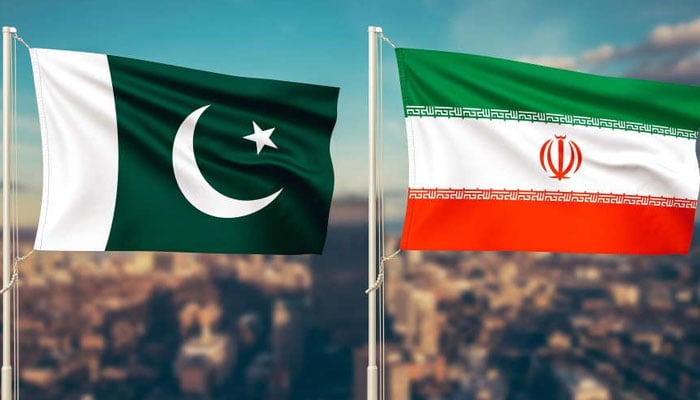By Staff Reporter
ISLAMABAD: Pakistan and Iran announced on Friday that they had restored diplomatic ties after a week of escalating tensions over cross-border airstrikes that killed several people and threatened to spark a wider conflict in the region.
The two countries said their ambassadors had returned to their respective posts in Islamabad and Tehran, following a phone conversation between their foreign ministers that reaffirmed their commitment to dialogue and cooperation.
The move was welcomed by both sides as a sign of goodwill and a recognition of their shared interests and challenges, especially in combating terrorism and extremism along their volatile border.
“As per the understanding between the two countries, Ambassador of Pakistan Muhammad Muddasir Tipu arrived in Tehran today while the Iranian Ambassador of Pakistan Reza Amiri Moghadam arrived in Islamabad,” Mumtaz Zahra Baloch, a spokesperson for Pakistan’s Foreign Office, said in a post on X, a social media platform.
Pakistan’s ambassador to Tehran said he was leaving for Iran in conformity with the “sincere and good wishes” of the Pakistani leadership.
“In conformity with the sincere and good wishes of Pakistan’s leadership, I am en route to Tehran. Ever more determined to work for a more robust, stronger & peace-loving Pakistan,” the envoy Tipu said.
“Strong Pakistan and Iran [ties] are critical for the region and to promote historic people-to-people ties. Time to turn a new leaf.”
The ambassadors had left their posts earlier this week after Iran launched an airstrike in Pakistan’s Balochistan province, targeting what it said were bases of Jaish al-Adl, a militant group that has carried out attacks inside Iran, killing at least two people.
Pakistan retaliated by bombing hideouts of Baloch separatist groups in Iran’s Sistan-Baluchestan province, killing nine more.
The tit-for-tat attacks raised fears of a broader confrontation between the two neighbors, who have long had a tense relationship over sectarian, ethnic, and geopolitical issues.
But both sides also signaled their desire to defuse the situation and avoid further escalation, with their top diplomats holding a series of consultations.
Last week, Pakistan’s National Security Committee, a high-level body that oversees security and foreign policy, endorsed the decision to resume diplomatic ties with Iran and expressed its hope that the two countries would “mutually be able to overcome minor irritants through dialogue and diplomacy and pave the way to further deepen their historic relations.”
The committee also stressed that Iran was “a neighbourly and brotherly Muslim country” and that any violation of Pakistan’s sovereignty, “under any pretext,” would be met with the state’s full force.
Iran’s Foreign Ministry echoed the sentiment, saying in a statement that it “adheres to the policy of good neighbourliness and brotherhood between the two nations and the two governments.”
The statement also praised the phone conversation between Foreign Minister Javad Zarif of Iran and Foreign Minister Khurram Jilani of Pakistan, saying it was “constructive and positive” and that the two sides agreed to enhance their cooperation on counterterrorism and other mutual concerns.
Copyright © 2021 Independent Pakistan | All rights reserved




